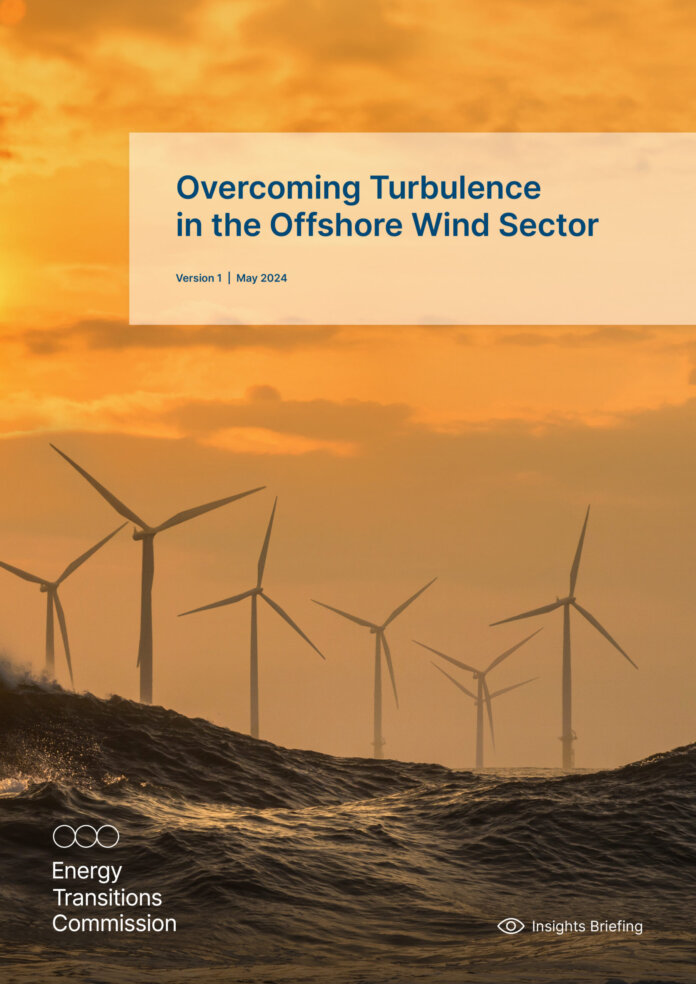The latest briefing from the Energy Transitions Commission (ETC), “Overcoming Turbulence in the Offshore Wind Sector,” has taken the perspective that governments and the industry need to join forces in order to both restore confidence in the market and drive down costs.
The briefing discusses how by last year, inflation, supply chain bottlenecks and higher interest rates led to rising project costs in some markets. In areas where a perceived offshore wind “crisis” ensued, projects and contracts were canceled. However, the commission believes these increases are mostly expected to be short-term.
“Offshore wind is vital for the clean energy transition,” says Adair Turner, chair of the ETC.
“It can generate electricity when the sun isn’t shining and doesn’t compete for land use. Now is a critical period to rapidly accelerate wind capacity if the world is to achieve net-zero emissions by mid-century. Governments should act now to restore market confidence by setting ambitious offshore wind targets and design auctions and contracts which provide market certainty and drive costs down.”
To be on track to install the capacity required for the clean electricity transition, the ETC recommendations for governments include setting ambitious targets and predefined auction schedules, process streamlining and addressing specific supply chain bottlenecks.
ETC members include: Arup, bp, HSBC, Iberdrola, National Grid, Octopus Energy, Petronas, Shell, SSE, Rabobank, Vattenfall, We Mean Business and World Resources Institute.




